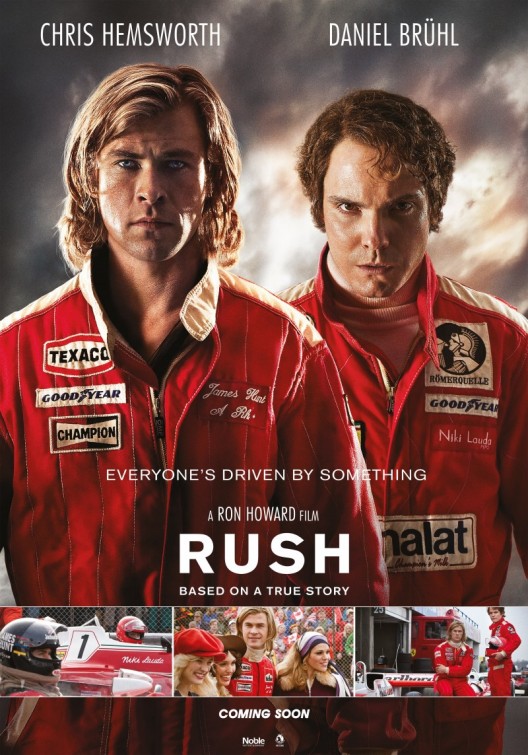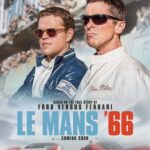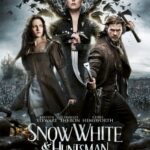Everyone’s Driven By Something
Director
Ron Howard
Starring
Chris Hemsworth
Daniel Bruhl
Set in the 1970’s, Rush tells the story of two Formula One drivers, James Hunt [Hemsworth] and Niki Lauda [Bruhl]. From their early days in the lower Formula Three division, they learn to dislike each other for their completely opposing methods and mindsets. Lauda insists that precision and the right car are necessary to achieve victory, going so far as to buy a share in a small, failing race team in order to compete. Hunt, on the other hand, is an incredibly talented but reckless driver. His natural skill is undeniable but his playboy cavalier attitude and excessive drinking and womanising frustrates the owners and sponsors. What starts as a simple rivalry and difference of opinion soon grows exponentially, egged on by media coverage. Finally, on 1st August 1976, several decisions are made and actions taken by both drivers that lead to a terrible accident and a changed life for one of them. I know that sounds stupidly vague, especially as the film’s marketing goes so far as to outline the entire film but I’ll sidestep that spoiler.. for now.
Rush has all the makings of a summer blockbuster – good cast, high tech computer imagery, international locations, high octane action sequences, sex, drugs, alcohol, scandal, rivalry, shock, drama, thundering score – yet all of this takes a back seat to the heart of the piece, which is the character evolution and development. Much like The Social Network the movie isn’t defined by its subject matter. Many labelled it simply as “the facebook movie” and dismissed it before realising that the core of the film is about obsession, competition, rivalry and betrayal. Equally here, the racing aspect serves as a backdrop. Oddly enough, this is a very British screenwriting trait, as scripts with outlandish action sequences almost always get passed over for budgetary reasons, so instead the ‘competitive racing,’ as it were, needs to be off the track and behind the scenes. As with all of Peter Morgan’s scripts, the events themselves are authentic but everything else weaves in and out of the truth for the purposes of entertainment – which is perfectly fine as the exchanges and creative decisions made play into the interest of conveying that character’s morality and personality. And as I’ve always said, if you are after a simple count of the facts, a documentary would be more suitable. Although how much of the genuine ‘truth’ can and has ever been caught on film is debatable.
Helmed by a wide selection of relatively unknown actors (as far as mainstream audiences are concerned), the roles are carried wonderfully. Hemsworth and Bruhl fully embody and emulate the feel of their characters and immediately give the audience a sense of their similarities, differences, strengths and weaknesses, right from the start. Furthermore, the film gives off a sense of partnership, as much as rivalry, to the degree that it’s actually hard to tell who the central character is. At times you could argue that the film is the story of Niki Lauda, a race car driver who suffered a terrible accident and overcame it to achieve incredible victories. Alternatively, you could say that this film is the story of James Hunt, a spoiled immature young man, who meets his match and does everything in his power to overcome this adversary while dealing with a turbulent home life. It’s only in the last few seconds of the film that one could say it is in fact Lauda’s movie. As far as fleshed out supports go, the rest of the cast are simply there to further the story or prompt an emotional response from our leads. For a great many films, this would be a massive detrimental flaw but because there are so many elements working in exquisite harmony, any further detail into the supporting characters would overwhelm the running time and hinder the central story.
No matter what you think of Ron Howard, it is impossible to deny how versatile and capable he is as a director. Of course, I mean this both positively and negatively. His last six films have been so separate from one another in terms of story, setting, cast and cinematographic tonality that it would be incredibly difficult to watch a certain release and immediately identify it as a Howard production. Every action seems to have been taken to ensure a sense of realism and setting is achieved. The production design, in terms of costumes, locations, hair and make-up, etc. really nail that 70’s feel but more than that, the way the sets have been lit and the post production tweaking has really cemented this factor. Then there’s the racing scenes themselves which are absolutely thrilling and compelling, regardless of whether you have an understanding or passion for the sport or not. Add into that the use of multiple languages to ensure a distancing between the two lead characters and a subtly charged score by Hans Zimmer and you have an incredibly powerful and impressive movie.
Unfortunately there will be those who cannot see past the F1 elements, or the choice of casting, or who will simply dismiss this movie as unappealing. I seem to recall a very similar reaction to Slumdog Millionare, right up until the point it started gaining immense popularity with critics and festival audiences. Maybe Rush will do the same, maybe it will surprise us all and strike that perfect middle ground of critical acclaim and box office success. Maybe not. But we can hope.
Release Date:
13th September 2013
The Scene To Look Out For:
The script is filled with charming moments and bursts of humour amidst the heavy drama and tension. One such moment is when the reserved, introverted Lauda meets the young Marlene Knaus [Alexandra Maria Lara]. Their entire first interaction, from his uncharismatic complaining about the condition of her car, to scoring a ride with his own fame (rather than her standing in the road with her thumb out), to finally showing off his racing skill, is just thoroughly entertaining.
Notable Characters:
As stated above, being unable to tell who is the central character, makes pulling a central performance equally difficult. At times all one can see is the bolshy arrogance yet private doubts exuding from Hemsworth. But then you’re presented with the sheer determination of will and underdog nature of Bruhl’s character and you immediately forget about anything else. This film is designed to be about two titans and from the script to the performances, it is in every regard.
Highlighted Quote:
“I believe in a twenty per cent calculable risk. Not one per cent more”
In A Few Words:
“A thoroughly surprising and engaging release, fit, not only for formula one fans but anyone interested in seeing a genuinely compelling and astonishingly equal tale of competitive rivalry”
Total Score: 4/5
![The Red Right Hand Movie Reviews [Matthew Stogdon]](https://reviews.theredrighthand.co.uk/wp-content/uploads/2021/12/cropped-header1.png)




